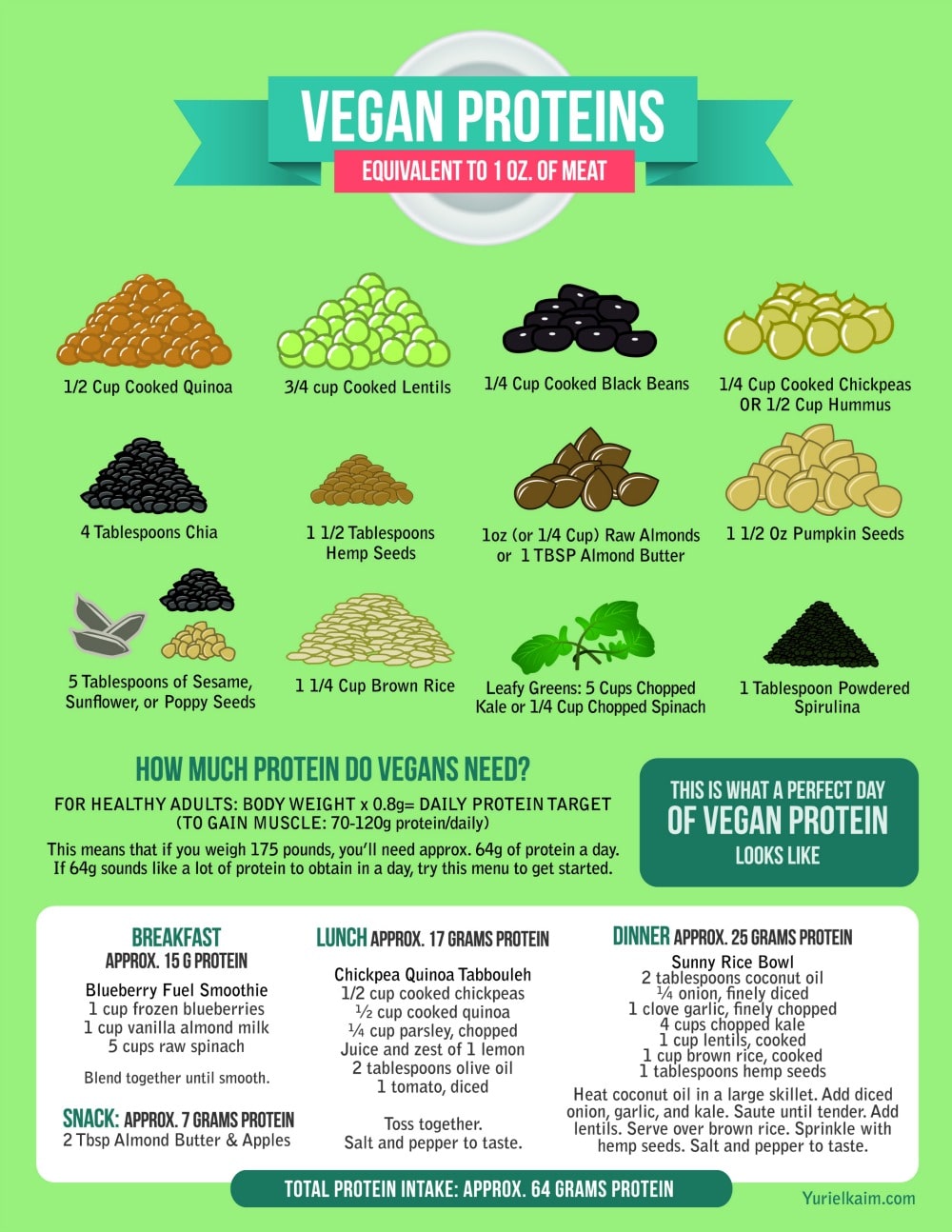Ultimate Guide To Vegan Protein Substitutes Best Vegan Protein Sources

Ultimate Guide To Vegan Protein Substitutes Best Vegan Protein Sources Dailyveganlife Quinoa is good at any time of day, even for breakfast! 2. tofu. tofu, made from soy, is probably one of the most well known vegan protein substitutes. before veganism became as prominent as it is today and being a vegetarian was more well known, tofu was the go to substitute for meat. Hemp seeds – with an incredible 31.6 grams of protein per 100 grams, the humble hemp seed is the superstar of the vegan protein seeds and nuts list. what’s more, as noted above it is also one of the relatively few vegan sources of complete protein, meaning that it contains all nine of the essential amino acids.

The Definitive Guide To The 12 Best Vegan Protein Sources Yuri Elkaim According to the usda, 1 cup of cooked quinoa contains: 8g protein. 222 calories. 3.5g fat. 39.4g carbohydrates. 5.18g fiber. quinoa is the underdog of vegan protein sources. it’s not the most popular grain, but it’s super high in protein. more importantly, quinoa is a complete vegan protein. Harald walker stocksy united. 2. tofu, tempeh, and edamame. tofu, tempeh, and edamame all contain iron, calcium, and 12–20 g of protein per 3.5 oz (100 g) serving. all three originate from. Peanut butter is easy to add to a variety of other foods, and peanuts themselves taste great. 4. almonds. there are 21.1 grams of protein in 100 grams of almonds, and even almond milk has a decent amount. the biggest downside with using nuts as a protein source is that they contain a lot of calories and omega 6 fats. Vegan protein substitutes are typically lower in calories than animal based sources of protein, making them a good option for those trying to lose weight or maintain a healthy weight. plant based protein sources are generally more sustainable and eco friendly than animal based protein sources, as they require less water, land, and energy to.

Comments are closed.